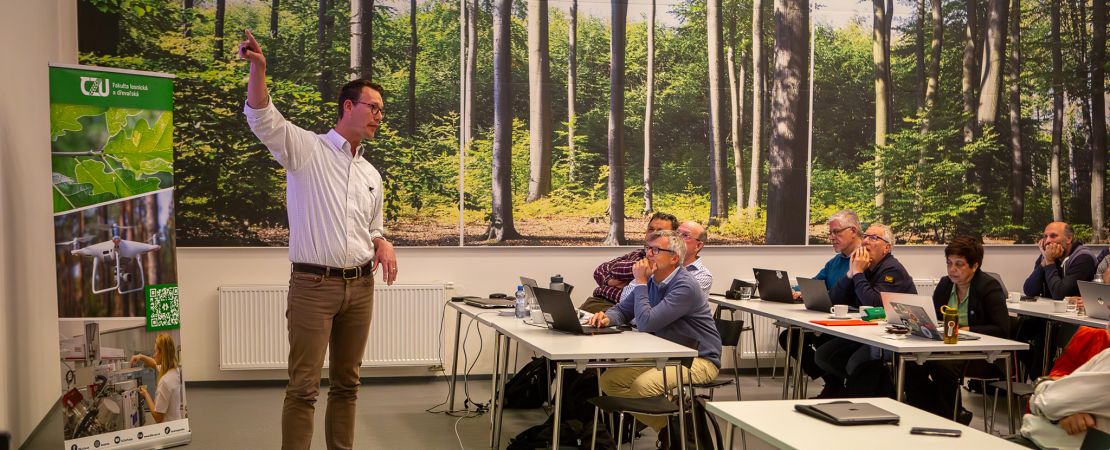An excellent new research center – Forest Invasion Synthesis Centre, Prague (FISC) - has been launched at the Faculty of Forestry and Wood Sciences CZU in Prague. Its aim is to bring together the world's leading experts working on the issue of biological invasions in forest ecosystems and to jointly seek ways to better understand, prevent and effectively respond to the impacts of these invasions.
FISC is the result of a prestigious ERA Chair grant under the European Horizon Europe programme. This grant not only enabled the creation of the Centre itself, but also the arrival of Dr. Andrew M. Liebhold, a prominent expert in the field of invasive species. Dr. Liebhold serves as the FISC's Chief Scientist and heads the emerging research team.
FISC operations utilize the model of synthesis centers, that has already proven successful in other areas of socio-ecological research around the world. It does not rely on the traditional structure of academic teams but organizes its activities through working groups composed of scientists, innovators and experts from different institutions and countries. Each group meets two to three times a year for intensive week-long meetings, during which they focus on a specific research problem in the field of invasion ecology. In between these meetings, collaboration continues through online consultations, institutional visits and joint publications.
The inaugural symposium, which took place on 6-8 May 2025 on the premises of the Faculty of Forestry and Wood Sciences attracted world leaders in the field of invasion biology and offered a platform for the exchange of knowledge on the issue of biological invasions in forest ecosystems across continents and disciplines.
Speakers included experts such as Prof. Petr Pyšek from the Institute of Botany of the Czech Academy of Sciences, one of the world's most cited scientists in the field of invasion ecology, Dr. Martin A. Nunez from the University of Houston, who has long been working on woody plant invasions and their impact on forest communities, Prof. Michael Wingfield from the University of Pretoria, the world's leading mycologist and forest pathologist, and Dr. Rebecca Epanchin-Niell from the University of Maryland, whose research bridges economics and ecology to inform effective policy and decision-making on invasive species management, biodiversity conservation, and climate adaptation in rural coastal regions.
Project HIVE 101187384. Funded by the European Union. Views and opinions expressed are however those of the author(s) only and do not necessarily reflect those of the European Union or the European Research Executive Agency. Neither the European Union nor the granting authority can be held responsible for them.

